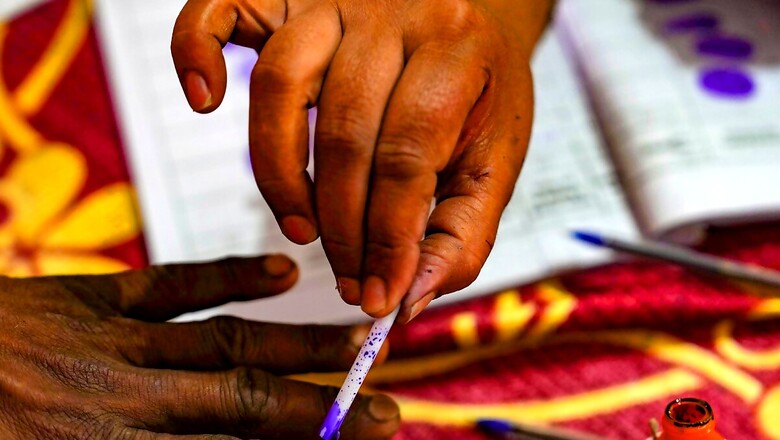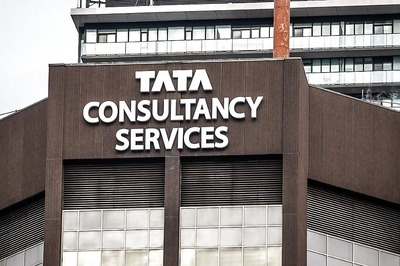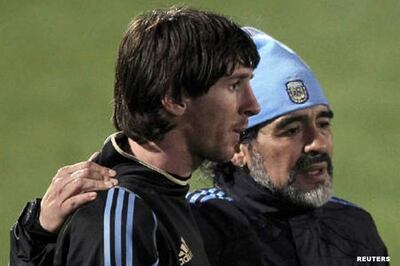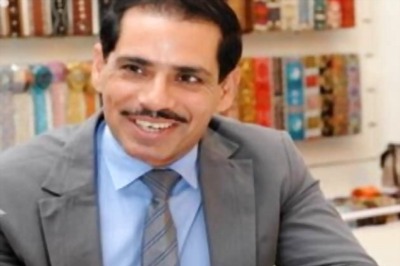
views
Mumbai North Central is one of the 48 Lok Sabha constituencies in Maharashtra and is located in the Mumbai Metropolitan Region (MMR). The constituency comprises the six assembly segments of Vile Parle (BJP), Chandivali (Shiv Sena), Kurla (Shiv Sena), Kalina (SS-UBT), Vandre East (Congress), and Vandre West (BJP).
Poonam Mahajan from the Bharatiya Janata Party is the incumbent MP here though the election ticket this time has gone to Ujjwal Nikam, while Varsha Gaikwad from the Congress is the other key candidate.
Polling will take place in the constituency on May 20 in the fifth phase of the ongoing general elections.
Political Dynamics
BJP Bets on Anti-Terror Crusader: The BJP has held the Mumbai North Central Lok Sabha constituency since 2014. In both 2014 and 2019, the BJP had fielded Poonam Mahajan, daughter of party stalwart late Pramod Mahajan. She won the election first by a margin of 1.86 lakh votes in 2014, and then in 2019, by a margin of 1.3 lakh votes. In this election, however, the BJP has replaced Poonam Mahajan and fielded a Marathi candidate, Ujjwal Nikam, from this constituency.
It is understood that the BJP was contemplating replacing Poonam Mahajan since internal surveys and polls did not paint a rosy picture for the incumbent MP. Having served two tenures as MP representing Mumbai North Central, the BJP found a certain degree of anti-incumbency had crept in against her. Despite this, while the local and state BJP leadership was pitching for her to be given the ticket, the party’s top leadership is understood to have favoured Ujjwal Nikam instead.
Another factor that played a part in the top brass fielding Nikam was the fact that the BJP has already fielded two non-Marathis in the city – Piyush Goyal from North Mumbai and Mihir Kotecha from East Mumbai. Therefore, the decision to field Nikam was aimed at striking a balance. Interestingly, the Congress candidate, Varsha Gaikwad, is a Dalit. Therefore, the BJP also appears to have been mindful not to pit Poonam Mahajan, a Brahmin, against a Dalit candidate.
Ujjwal Nikam was the special public prosecutor in some of the country’s most high-profile terror and crime cases including the 1993 Mumbai serial blasts and the trial of the 26/11 Mumbai attacker Ajmal Kasab which ended with the Pakistani terrorist being hanged. By fielding him from Mumbai North Central, the BJP is looking to make a big statement on how anti-terror crusaders choose to ally with the party and join its ranks.
Often dubbed a ‘mini-Mumbai,’ Mumbai North Central epitomises the city’s diverse demographics. With 17.1 lakh voters, one-fifth of whom belong to the Muslim community, followed by Marathi voters forming a third of the population, the constituency has residents from both extremes of the economic spectrum. While one can find plush bungalows belonging to the likes of film stars and sportspersons, there are also shanties that house poor families. The constituency also hosts a significant population of north Indian, Gujarati, Rajasthani, south Indian, and Christian voters.
While the Hindus form the majority, the share of the Muslim population in the constituency has always made the fight here tricky for the BJP. This election is no exception, especially as the Congress makes the supposed threat BJP poses to democracy and the constitution as one of its primary poll planks here.
The BJP, however, has an edge in this constituency. It won the seat by a margin of about 1.3 lakh votes in 2019, which provides the saffron party with sufficient cushion. The Vanchit Bahujan Aghadi and AIMIM have also fielded their candidates here, which will squarely divide the Dalit and Muslim votes and place the Congress at a disadvantage.
Besides, the north Indian, Gujarati, and Marwari voters are also expected to side with the BJP. The population of Gujarati and Rajasthani voters also comes close to 2 lakhs. The Mahayuti alliance also holds four assembly segments here and will harness the individual support bases of their MLAs to ensure a victory for Ujjwal Nikam.
That being said, there is no denying that the BJP faces a tough fight this time around. Both the candidates, Ujjwal Nikam and Varsha Gaikwad are new to Mumbai North Central in terms of electoral contests here, and as such, there is a degree of uncertainty that clouds both their prospects. A lot depends on just how many of its voters the BJP’s well-oiled organisation can bring out. A drop in the percentage of BJP’s core voters on polling day could spell trouble for the party.
MVA Hopes Rest on Congress: The Congress, which fielded Sanjay Dutt’s sister Priya Dutt against BJP’s Poonam Mahajan both in 2014 and 2019, has had to face defeat in both the elections. This time, the Congress has chosen a Dalit leader and its Mumbai unit president, Varsha Gaikwad to take on the saffron party.
Varsha Gaikwad, who is a Dalit-Ambedkarite herself, is expected to harness the votes of the SC community. This, apart from the Muslim votes in Mumbai North Central, which number between 3.5 to 4 lakhs, is giving the Congress a real fighting chance in the constituency. The demographic dynamics were similar in 2019 as well, but the Congress stood second and was able to get just about 3.5 lakh votes. There is no concrete evidence to suggest that the Congress has expanded this support base in the past five years. The Dalits and Muslims alone are not enough to defeat the BJP here, which has a much more diverse support base.
The Congress hopes that Uddhav Thackeray’s Shiv Sena (UBT) will be able to transfer its support base to Varsha Gaikwad lock, stock, and barrel. However, for an ordinary Shiv Sena voter, who has always voted against the Congress to now be expected to support the Hand symbol is a big ask – one riddled with many contradictions and ironies.
While the Shiv Sena UBT is the Congress’s X factor in this election, the fact is that there are parties vying for the grand old party’s Dalit and Muslim voters. Prakash Ambedkar’s VBA has fielded Abdur Rehman Anjaria, while the AIMIM has chosen Ramzan Chaudhary as its candidate. Both these parties are expected to grab a share of the Muslim votes here. In fact, not only is the VBA eyeing Dalit voters, but by fielding a Muslim candidate, has also made clear its intentions of grabbing a share of the minority votes.
Besides, the Congress itself is betting on poll planks like “democracy under threat” and “save the Constitution”. While this may consolidate its position among voters who are already expected to vote for the Congress, there is not much resonance that these issues find among the larger electorate. For them, the BJP continues to remain the primary choice, since the party is talking about development and “Modi ki Guarantee”.
The Congress has also had to face open rebellion over its decision to field Varsha Gaikwad from Mumbai North Central. Arif Naseem Khan claimed that he was promised the seat and is openly opposing Varsha Gaikwad’s candidature from there. He even resigned as the Congress’s star campaigner after Gaikwad’s name was announced. Arif Naseem Khan could spell further trouble for the Congress among Muslims, by nudging them not to vote for Varsha Gaikwad.
Demographics
- Total voters: 16,93,556
- SC: 110,081 (6.5%)
- ST: 10,161 (0.6%)
- Muslim: 417,426 (24.6%)
- Voter turnout in 2019 general election: 53.6%
Key Issues
Fishermen’s Issues: The Kolis, Mumbai’s longstanding fishing community, are facing a multitude of challenges. Data from the Marine Fisheries Census of India reveals a decline in fishing families in Mumbai’s 30 fishing villages, dropping from 10,082 in 2005 to 9,304 in 2010. This decline is compounded by dwindling fish populations near the Mumbai coast due to increasing pollution. Fishermen have proposed designating the silver-skinned pomfret as Maharashtra’s official fish to promote conservation efforts. Unseasonal rains also pose a significant problem, leading to reduced catches and financial hardship for fishermen. Unlike farmers who receive compensation for crop failures, fishermen lack similar support, resulting in a growing debt burden. They are advocating for equal treatment, demanding government compensation during seasons with low catches.
Slum Rehabilitation: Slum rehabilitation remains a key issue, and there have been demands to implement the slum rehabilitation schemes that have been regularly neglected. On March 6, 2024, chief minister Eknath Shinde approved the slum redevelopment project, aimed at rehabilitating more than 15,000 slums across Mumbai. In addition, people have urged the government to take full responsibility for slum improvement by leveraging available funds from various sources including BMC’s fixed deposits, MHADA, the central government, and the Pradhan Mantri Awas Yojna.
Preservation of Green Cover and Landscape: The preservation of green spaces in Mumbai faces several challenges. Turzon Hill and Lake in Charkop, a habitat for migratory birds, reptiles, and even golden jackals, has experienced increased encroachment since the Covid-19 pandemic, prompting calls for its designation as a bird sanctuary. Dindoshi Hill in Goregaon, the source of the Oshiwara and Valbhat rivers, is also threatened by encroachment from builders despite its No Development Zone status and leopard population. The hill’s preservation is crucial to mitigate flood risks, as any alteration to its landscape could have significant consequences across the city. The destruction of mangrove trees and the expansion of informal settlements, particularly in mangrove forests, wetlands, and national park lands are also major concerns. Furthermore, the unauthorised parking of buses in mangrove areas is not only promoting encroachment but also endangering the mangrove ecosystem and the surrounding forests. In Mumbai North Central, air pollution and preservation of green cover are both key issues, with citizens demanding that rampant development and industrial activity be carried out in such a way that the environment is not adversely impacted.
Infrastructure Issues: Mumbai North Central faces significant infrastructure challenges, particularly in terms of transportation and development activities. Such activities, residents argue, are being carried out in an unsustainable manner, with the most immediate effect being the rise in air pollution. Several areas in the constituency are witnessing residential redevelopment projects and those areas of Vile Parle, Santacruz, Chandivali, and Kurla, which come in the funnel zone of the nearby airport, are facing several restrictions in reconstruction due to height limits. Ensuring last-mile connectivity with Bandra-Kurla Complex (BMC) is also an important issue. There are also demands for the abolition of GST levied on cooperative housing societies.
Traffic Congestion: Traffic congestion has become a major issue in North Central Mumbai and has incensed the commuters. The rising population coupled with the rising number of private vehicles in the constituency is a major contributor. People have demanded better traffic management systems and decongestion of lanes. Congestion due to parking of buses and passengers congregating to board the buses in the middle of the road at various bus stoppages is contributing to traffic congestion. In addition, unauthorised parking and private vehicles and buses on the streets also lead to chaos on the roads.
Infrastructure Development
Mumbai-Ahmedabad Bullet Train: It spans a distance of 508 km and is poised to revolutionise the commute between Mumbai and Ahmedabad. It offers a major reduction of travel time, from the current 7 to 8 hours to a mere 2 hours and 57 minutes. It is being built at a cost of Rs 1,08,000 crore.
Navi Mumbai International Airport: It is slated to commence operations in 2025 and will help ease the burden on the Chhatrapati Shivaji Maharaj International Airport. It is poised to emerge as a pivotal hub in the Mumbai Metropolitan Region, accommodating a substantial cargo capacity of 2.5 million tonnes by the year 2032. It is being built at a cost of Rs 18,000 crore.
Versova Bandra Sea Link: It will connect Juhu-Koliwada and Otter’s Club, and Nani Park in Versova to Bandra. It is set to be completed by 2027. The sea link will have a length of 17,170 metres and is being built at a cost of Rs 11,333 crore.
Mumbai Coastal Road: It is an under-construction mega project that will connect Marine Lines in the south to Kandivali in the north. It is being built at a cost of Rs 12,000 crore and spans a length of 29.20 km.
Mumbai Trans Harbour Link: It is a 21.8-km-long sea bridge, which stretches from Sewri in Mumbai to Chirle in Navi Mumbai. It is the longest sea bridge in India. It was inaugurated in January 2024 by PM Modi. It has helped alleviate traffic woes in Mumbai and is expected to further boost economic activity between Mumbai and Navi Mumbai.
Metro Aqua Line 3: The metro line will connect Colaba-Bandra in the south to SEEPZ in the north, seamlessly linking Aarey to Bandra Kurla Complex (BKC). It is being built at a cost of Rs 33,000 crore. Trial runs are continuing on the line and the project will be opened to the public soon.
Explore in-depth coverage of Lok Sabha Election 2024 Schedule, Voter Turnout, Upcoming Phase And Much More At News18 Website


















Comments
0 comment